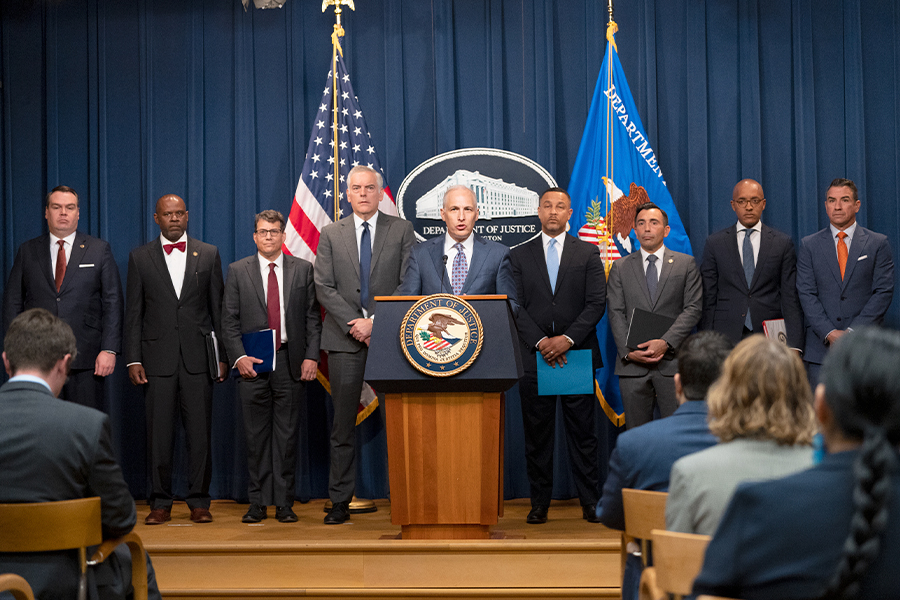
Too often, the news is filled with stories of large corporations getting away with all kinds of abuses—mistreating workers, fouling the environment, cheating consumers, undermining our privacy. This week has been different.
On the labor front, there has been more coverage of strikes than we have seen for a long while. This includes a resolved dispute involving film and TV writers, a continuing one involving actors and an escalating one involving autoworkers. These work stoppages are all receiving widespread public support.
The auto strike also brought about the first-ever visit of a sitting U.S. President to a picket line. Occupants of the White House have more typically responded to walkouts by blocking them—as Biden did with railroad workers last year—or with more extreme measures such as Reagan’s firing of the air traffic controllers in 1981.
At the same time, news outlets are giving substantial play to efforts by federal and state governments to curb the power of Big Tech. The Federal Trade Commission, along with 17 state attorneys general, just filed a sweeping complaint against Amazon.com, accusing the e-commerce giant of abusing its market power to the detriment of both consumers and small businesses that rely on its platform to sell their goods.
The FTC complaint arrives as the trial proceeds in a Justice Department lawsuit against Google for monopolizing the online search market. Both cases challenge the core business models of the companies. Even if break-ups of the tech giants are unlikely, adverse court rulings could require them to make fundamental structural changes in the way they operate.
Significant changes, while perhaps not as drastic, could also result from the current labor disputes. It appears that the new contract won by the Writers Guild of America will put limits on the industry’s control of content created with the help of artificial intelligence. United Autoworkers members are seeking to dismantle tiered wage structures and reduce the basic workweek while the industry is making the transition to electric vehicles.
Other fundamental challenges to corporations can be seen in the environmental area. Not long ago, a group of young people in Montana prevailed in their lawsuit arguing that the state’s failure to consider climate change when approving fossil fuel projects was a violation of a provision in the Montana constitution guaranteeing residents the right to a clean and healthy environment. This is just one of numerous efforts to use the courts to address the climate crisis. Large companies are also facing the prospect of new greenhouse gas disclosure requirements—one passed by the California legislature and another pending in the European Union.
Corporations are not giving into these challenges without a fight. They are trying to limit their concessions to unions, aggressively arguing their positions in the court cases, taking steps to sway public opinion and employing legions of lobbyists to promote their point of view to legislators and policymakers.
Yet, for the moment, it is a pleasure to see Big Business on the defensive.



You must be logged in to post a comment.